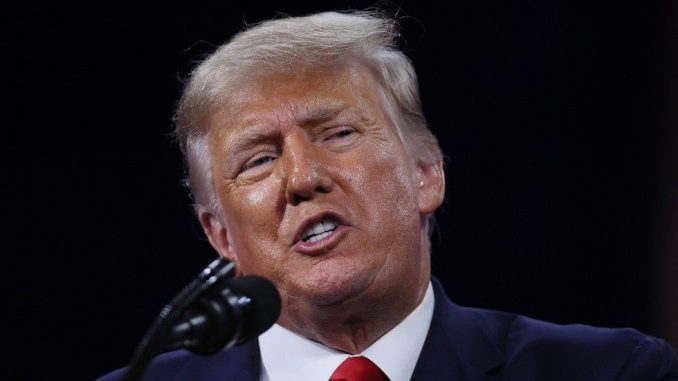
The Supreme Court on Monday denied a bid by former President Trump to nullify his electoral loss in Wisconsin, rejecting the former president’s final pending appeal over the results of the 2020 election.
In an unsigned order without noted dissent, the justices declined to take up Trump’s lawsuit alleging Wisconsin election officials violated the Constitution by expanding absentee voting amid the global coronavirus pandemic.
The justices’ move brought an end to Trump’s scattershot and ineffective legal campaign to overturn President Biden’s victory and added to the abysmal post-election court record of Trump and his allies, which included more than 60 losses and just one narrow win.
Trump sued in Wisconsin more than a month after Biden won the state by just over 20,000 votes.
His lawsuit claimed that policies put in place by the Wisconsin Election Commission to mitigate the spread of the coronavirus — like establishing absentee ballot drop boxes — illegally usurped the state legislature’s sole power over election rules.
When he filed the suit in late December, Trump had asked the court to fast-track a review of his case ahead of the Jan. 6 meeting of Congress to certify the results, a request the justices denied.
That joint congressional session was later interrupted when a violent pro-Trump mob breached the Capitol. Trump’s comments to the mob just prior to the riot fueled his second impeachment in the House. He was later acquitted in the Senate.
The court’s denial of Trump’s appeal on Monday means that fewer than four justices agreed to hear his case.
Several of the court’s more conservative justices had previously indicated an interest in addressing questions over what the Constitution says about how election authority is allocated within states.
As is typical practice, however, the justices did not provide the public on Monday with a full view of how they voted on the petition or their reasoning.
Some legal scholars believe that the Jan. 6 insurrection at the Capitol dissuaded the court from taking up disputes related to the 2020 election over concerns that it could fuel false claims promoted by Trump and his allies that the election results were illegitimate.
Via The Hill
